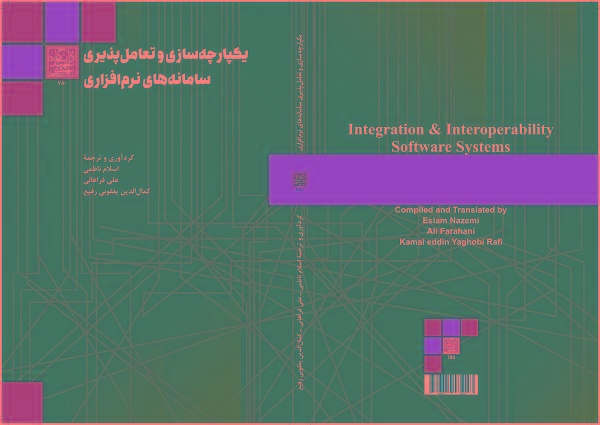
The book "Integration and Interoperability: Software Systems" compiled and translated by Dr. Eslam Nazemi, faculty member of the Faculty of Computer Science and Engineering of SBU, Dr. Ali Farahani and Dr. Kamal eddin Yaghobi Rafi, graduates of SBU has been published recently by SBU Press.
Automated and self-adapted interoperability at run time are topics that have been posed in recent years and are the most important current research directions in the field of integration and interoperability in information technology.
The multiplicity of different concepts in this field, along with the increasing development of approaches and technologies, has led to the disintegration of this field of research. For example, there are many debates about the similarities and differences of concepts such as Interoperability and integration in the literature. On the other hand, in our country, despite some progress made in the field of systems integration and interoperability, there are still many challenges in terms of application that require serious determination of experts and scholars in the field. Taken these issues into consideration, there is a great need in the country for a reference that acts as a point of entry into the issue of integration and Interoperability and introduce the basic concepts of this field.
The main purpose of the present book is to get acquainted with the basic concepts and principles related to the integration and interoperability of systems on a large scale. In this regard, the compilers have attempted to cover the main concepts of this field by benefiting from the research and technical works, including reference and basic works, as well as new research and technical achievements, and thus provide a road map for scholars to enter this field. Although the main focus of the book is on middleware and integration patterns for systems interoperability, an attempt has been made to combine these concepts with the concepts and languages of the interoperability field to create a comprehensive picture of the field for readers. It should be noted that the book addresses the new challenges in the field of interoperability in super-wide systems and the topics of automated interoperability.


